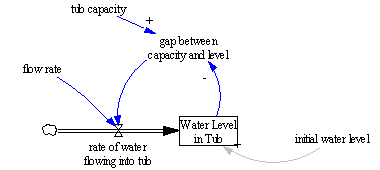
We live in a world far more complex and interconnected than the simple cause-and-effect world that most of us learn about in school. A deeper understanding of our world comes only from studying the connections that make up the structure of the systems in which we live. Systems thinking helps us develop that deeper understanding.
Economics represents only one field of study in which systems thinking can deepen our understanding. People refer to "economic systems" with out fully comprehending the importance to the systemic nature of economies. And action in one part of an economy can have effects that ripple through an entire economy. Henry Hazlitt's Economics in One Lesson, quoted on many pages in this website, alludes to the interconnections in an economic system.
I will frequently delve into the nature of systems in much of the material posted on this website. I will also introduce visitors to System Dynamics, and important tool for understanding the dynamics of large and small systems.
Introduction to Systems Thinking
Introduction to Systems Thinking
See an interesting introduction to systems thinking.
System Dynamics
This process of systems analysis, developed by Jay Forrester, provides a useful tool in describing many economic concepts.
System Behavior
You can learn a lot about a system by watching, or better yet plotting its behavior. We will give some examples here.
Causal Loops
One popular way to graphically display the structure of systems consists of causal loop diagrams. We will show some causal loop diagrams as examples.
Economic Systems (Markets)
Economic Systems
Because of the importance of view economies as systems, we have set up a separate section for that subject: Economic Systems [Covered at The Free Market Center
In the sub-topics (I will post later) I will describe the importance of systems thinking in Creating Superior Organizational Performance.



